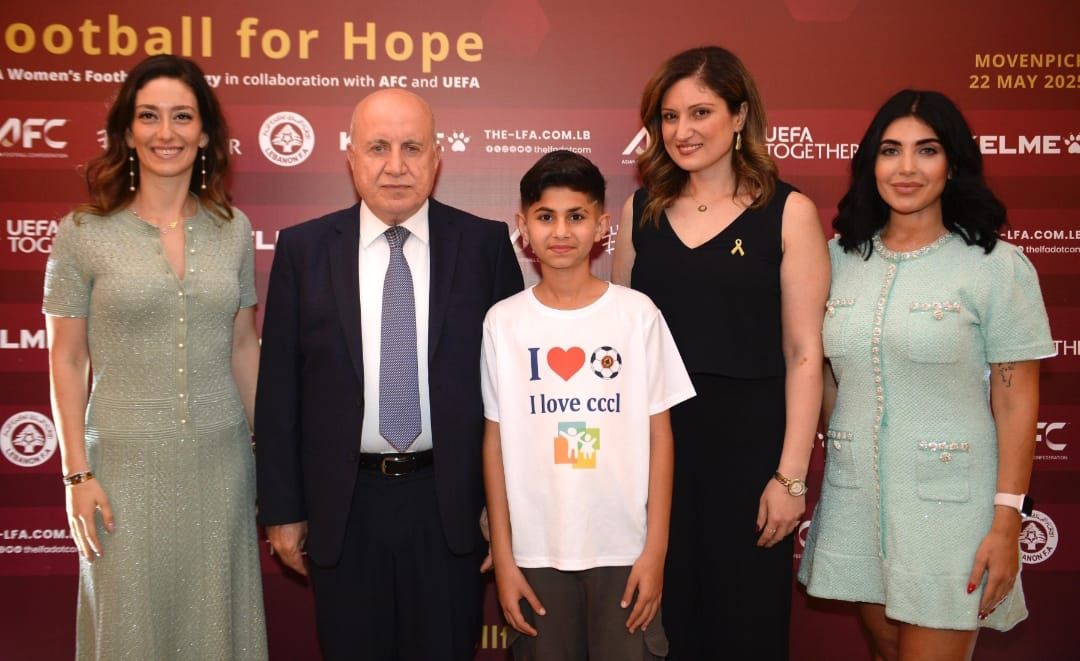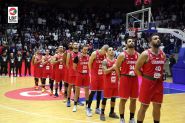
The launch of “Football for Hope” marks a pivotal moment for women’s football—blending athletic ambition with social responsibility.
Lebanon hasn’t just introduced a strategy—it has issued a statement of intent. In a setting both focused and inspired, the grand hall of the Mövenpick Hotel served as a symbolic ground yesterday for the kickoff of Football for Hope—a transformative development project for women’s football, spearheaded by the Lebanese Football Association in partnership with UEFA.
President Hashem Haidar set the tone: “This is not a ceremony. This is a direction.” And this direction is built on six strong pillars: strengthening the national teams, consolidating local leagues, engaging the public, promoting female leadership, enhancing marketing, and boosting media visibility. A clear game plan for a long-term match.
One Team, One Vision, One Mission
Since 2006, the ball has been rolling for Lebanese women. With a WAFF U18 title, repeated U16 finals appearances, and steady progress in the FIFA rankings, the scoreboard looks promising. But for Haidar, the stakes go beyond results: “What we’re building is a lasting presence of women in every part of the game.” That includes the sidelines, leadership stands, and refereeing—now with two Lebanese women among Asia’s elite, and the first ever elected to the executive committee, Paula Farah Rizk.
The strategy laid out goes beyond the pitch. It also enters the social battle. In collaboration with the Children’s Cancer Center of Lebanon, the Federation reaffirmed its belief that football can change lives. As Nivine Turyaki put it clearly: “For these children, football isn’t a pastime. It’s a lifeline.”
The Ball as a Beacon of Hope
When young cancer survivor Hussein Kawouk took the stage, he didn’t just receive applause. He received a tribute. Just like the emotional testimony of player Celine Haidar—who returned from injury and from a war-torn Lebanon with a ball at her feet and her gaze unshaken.
Finally, a technical roundtable led by Wajih Gharzeddine, Rana Nakhle, and Sarah Aouali mapped out the concrete next steps. The goal: to make this strategy a living, breathing project—on the field and in people’s hearts.
Lebanon now plays with a vision. And this time, it’s the women’s team leading the way.




Comments